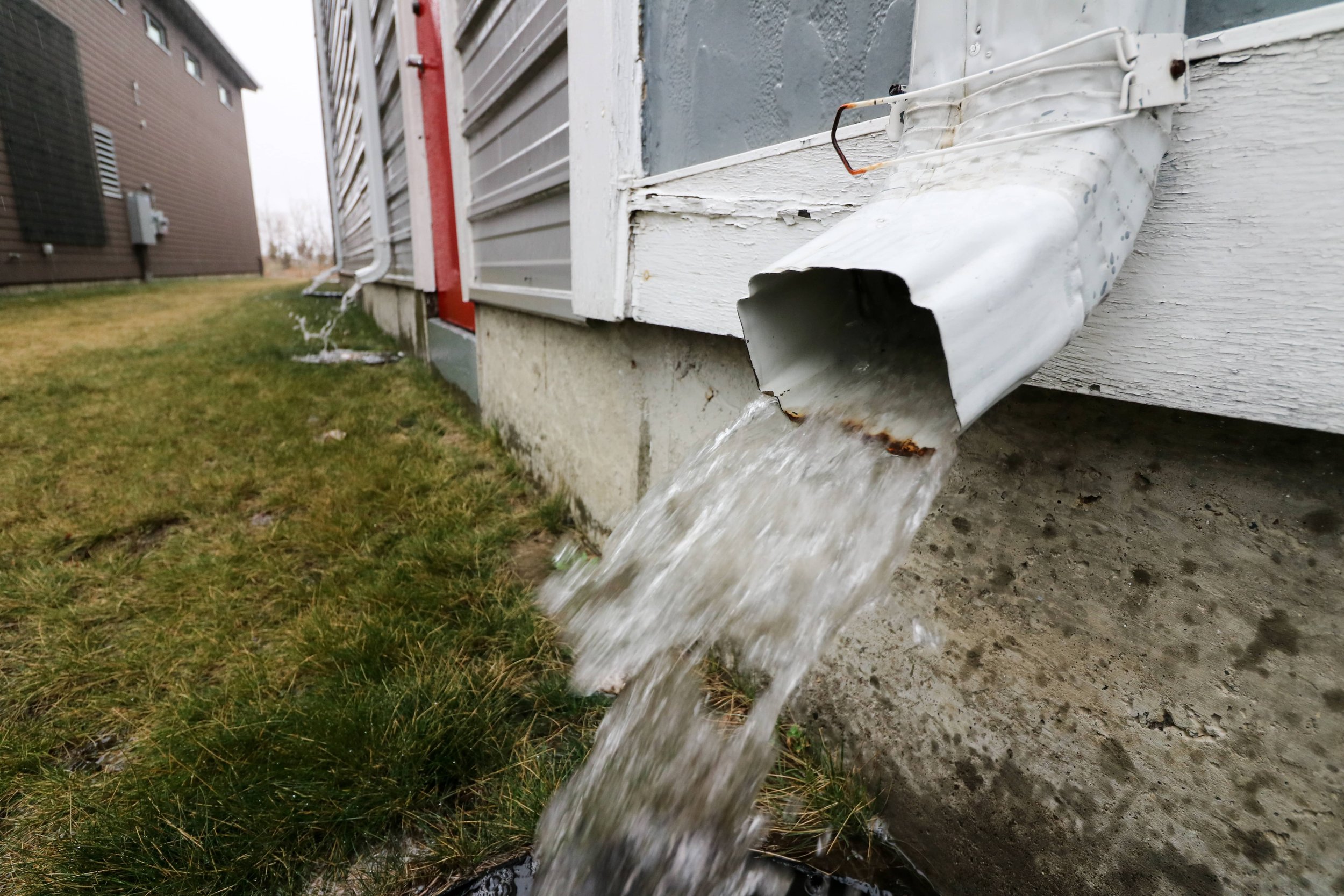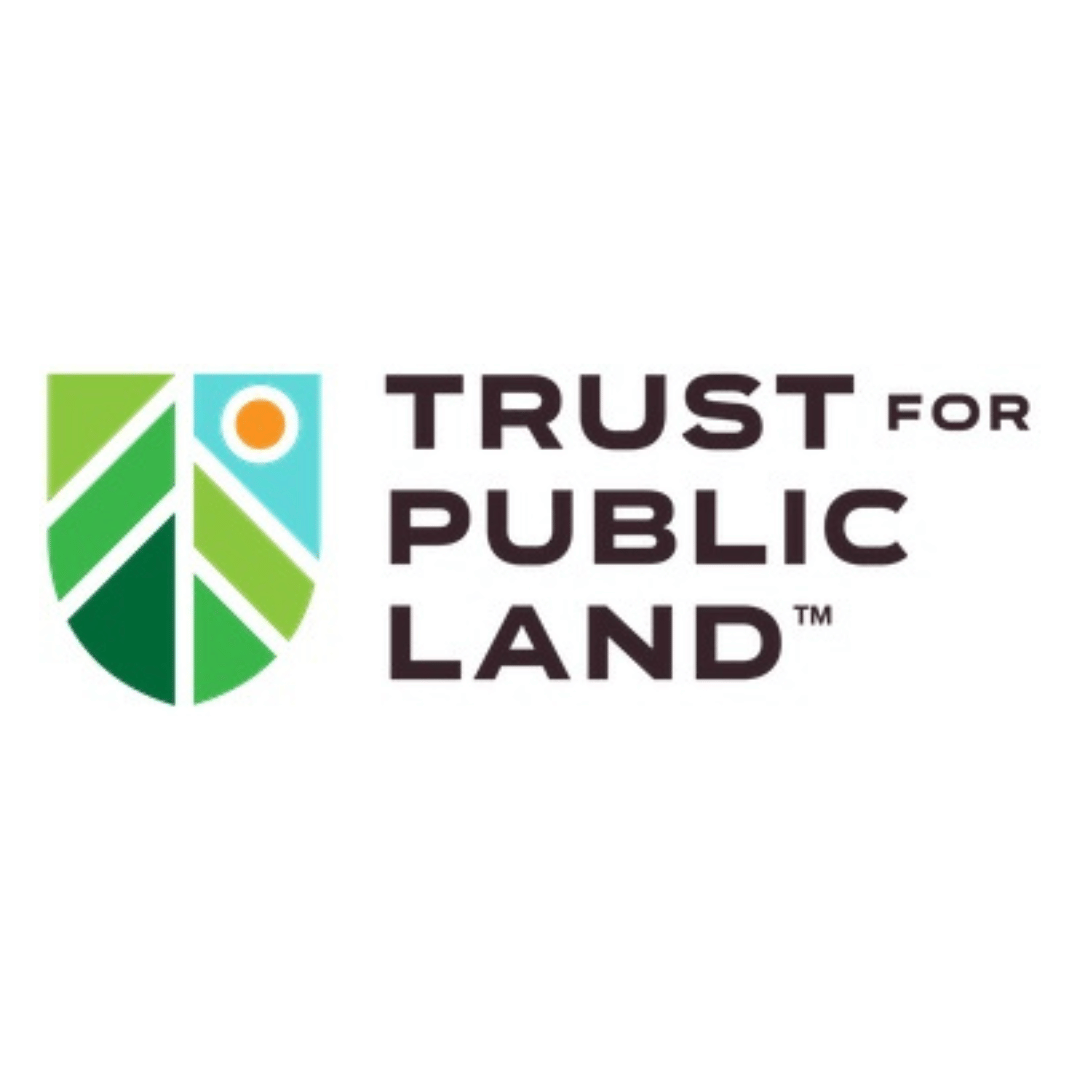
Accelerating Green Infrastructure as Equitable Community Development
CRS and our partners are offering the first Nature-based Climate Solutions Accelerator sequence on Stormwater + Green Infrastructure.
This capacity-building sequence will bring a cohort of municipal & community allies through 3 modules designed to rapidly grow community capacity to implement equity-centered, nature-based climate solutions to some of the most pressing climate change challenges facing communities.
The GSI Accelerator is a joint offering of Center for Regenerative Solutions, Trust for Public Land, and the Green Infrastructure Leadership Exchange.
Thank you to our funders and sponsors for their generous support of the GSI Accelerator
These Cities Make Up the First Green Stormwater Infrastructure Cohort!
These communities have each formed collaborative multi-stakeholder partnerships, bringing together municipalities, tribal nations, community-based organizations, and non-profit partners to advance equity-centered green infrastructure solutions in their communities.
Albuquerque, NM
Austin, TX
Baltimore, MD
Boise, ID
Boulder County & Denver City, CO
Chicago, IL
Cincinnati, OH
Cleveland, OH
Fulton, AR
Alliance for the Mystic River Watershed
Jersey City, NJ
Kansas City, MO
Pierce County, WA
Pima County & Tucson, AZ
Sacramento, CA
St. Louis, MO
A self-paced evergreen version of this Accelerator will be made freely available with videos and resources after the conclusion of the live sessions this fall 2024. Sign up for our email list to be notified when it launches.

Background & Objectives
We are on the cusp of a historic moment for GSI.
With estimated capital investment in stormwater infrastructure of more than $270 billion over the next 20 years, as well as historic levels of new federal water funding under the Bipartisan Infrastructure Law and Inflation Reduction Act, the need to establish more comprehensive approaches to GSI that benefit local communities is critical.
With this momentous opportunity to expand GSI in the framing of community development, the Accelerator requires partnership between community organizations and a range of departments within public entities. The vision goes beyond just learning new skills, rather it is the experience and connection around growing the workforce of living wage jobs in GSI as part of a broader definition of “Green Infrastructure.” As public sector entities have resources and opportunities to direct toward collaborative community elements, there is a timely opportunity to bring leading players in GSI into ongoing discussion of how to direct investments into expanding an equitable GSI workforce.
With an infusion of investment into integrated approaches that center equity, economics, and environmental best practices, the GSI sector can replicate the recent up-leveling of the Urban & Community Forestry sector. In this sector, a broad coalition of both public sector professionals, community-based organizations and advocates, workforce development initiatives, and elected officials successfully advocated for significant increases in priority and investment in. It was through the formation of this broader coalition—beyond simply the subject matter specialists—that this increased profile and prioritization was achieved.
This includes increasing the visibility of new approaches that demonstrate the integration of multiple sectors such as GSI and urban forestry. “Cooling corridors” are one such example already being demonstrated in other countries like Colombia. In these areas, transportation medians are being redesigned to serve simultaneously as stormwater retention basins and self-watering tree and vegetation-based cooling corridors that are achieving significant storm water flow reductions, reductions in extreme heat through vegetative cooling, and important biodiversity habitat development.
Objectives of the GSI Accelerator include:
✔ Rapid development and prototyping of new knowledge, tools and systems needed to address critical climate change threats and opportunities through nature-based solutions.
✔ Equity-centered models to promote community and economic development through implementation of nature-based climate solutions.
✔ Collaboration and coordination across local governments, community-based organizations and the private sector to leverage their shared resources, capacities, and spheres of influence/control to shift power and resources to those who’ve previously been excluded from climate action planning and implementation.
✔ New approaches to financing significant scale-up of urban nature-based climate solution sectors, both public and private sector based.
✔ Explore the potential for a coordinated effort to significantly increase the perceived priority and level of investment to GSI efforts locally, regionally and nationally as part of a larger nature-based climate solutions agenda.

Modules & Instructors
Module 1 - Green Infrastructure as Equity-centered Climate & Community Action
-

Alicia Smith - Executive Director, The Junction Coalition
Alicia is the Executive Director of The Junction Coalition, a community-based organization in Toledo, Ohio, dedicated to empowering residents through education, environmental justice, economic development, and civic engagement. Alicia’s passion flows from her belief that all citizens need information to thrive, and she believes that Justice work includes the Environment and also issues of Social and Economic Justice with the goal of promoting Peace, Public Health and a better quality of life for all citizens.
To reach these goals in the community, the Junction Coalition created the Junction Neighborhood Master Plan in 2018, the first of its kind since 1968. In 2020, Alicia was awarded the UWLN Environmental Justice and Equity Expert Award. For the past year, she’s also been an invaluable member of the UWLN Equitable Development and Anti-Displacement Collaborative, hosting the Community Wealth Building as an Anti-Displacement Strategy Peer Call in April 2021.
-

April Mendez - Chief Executive Officer, Greenprint Partners
A co-founder of the firm, April leads Greenprint’s national team on our mission to get the most good out of green infrastructure. April is a seasoned social entrepreneur and community organizer, with expertise in scaling community-led solutions intractable challenges. She supports the Greenprint team in conceptualizing and delivering solutions that are authentically community-centered and committed to advancing equity. Before founding Greenprint, April spent 13 years building Interfaith America, a nonprofit dedicated to fostering leadership in religious diversity. She began her career as a grassroots community organizer and founded an organization promoting social entrepreneurship among Black and Latinx youth in Chicago.
-

Jessica Engel - RainScapes Program Manager, King County’s Department of Natural Resources and Parks
As the Climate Preparedness Specialist for the King County Department of Natural Resources and Parks, Jessica works across multiple County agencies, with external partners, and stakeholders to incorporate climate science into existing and new County programs and projects. Working to ensure the County is prepared and resilient in the wake of increasing climate impacts to the region, Jessica leads regional efforts for increase resiliency in an equitable and consistent manner and communicates climate impacts to those communities who are impacted most, developing partnerships in order to comprehensively reduce local impacts.
Jessica also manages a program to increase tree canopy throughout the county, focusing on co-benefits such as stormwater management, reduced urban heat island effects, shade for salmon recovery, green space for communities, and carbon sequestration. Her background is in water quality and ecology, stormwater management and infrastructure.
-

Katherine England - Director of Green Infrastructure, City of Boston, MA
Kate England, GIP, ENV SP, is the Director of Green Infrastructure for the City of Boston. She has a background in engineering, landscape architecture, planning and policy and has worked in the public sector in and around Boston for most of her career. Kate was appointed by Mayor Wu in July 2022 to facilitate widespread implementation of green infrastructure (GI) and help pursue the resilience goals outlined in Boston’s Green New Deal.
Prior to joining the City, Kate worked for the Massachusetts Department of Conservation and Recreation (DCR) where she served as the Regional Engineer for the Boston Region, then became a Regional Planner and chaired one of DCR’s Climate Action Teams. Kate also previously worked for the Boston Water and Sewer Commission where she initiated and managed the Commission’s green infrastructure projects. Kate holds two Bachelor’s degrees from Northeastern University, as well as a Master’s degree from Brown University.
-

Lisa Sasso - Senior Project Planner, Milwaukee Metropolitan Sewerage District
The Milwaukee Metropolitan Sewerage District (MMSD) is a regional government agency that provides water reclamation and flood management services for over 1 million people in 29 communities in the Greater Milwaukee Area. With more than a decade of working in the water sector, Lisa's expertise is in cultivating partner relationships to extend the reach of MMSD to better meet the needs of both MMSD and the community we serve.
With a background in business, policy, and freshwater science, Lisa implements meaningful green infrastructure projects with partners and currently works on a variety of projects from schoolyard redevelopment, community-based green infrastructure programs, equitable community engagement, and green infrastructure maintenance.
-

Roseann Barnhill - Principal & Director of Ecology and Green Stormwater Infrastructure, Dirt Corps
Focusing on community based environmental restoration, Roseann is a plant ecologist with a background in wetland, stream restoration, and horticulture. She was a founding instructor for Dirt Corps when it began as a community partnership of independent businesses in 2015. Since then, she serves as a director, instructor and designer. She enjoys the diversity of projects, the rich relationships with DC’s partners and the joy of building beautiful spaces in our communities.
Module 2 - Demonstrating Success - Case Studies in Leading Approaches to Community and Equity-Centered GSI
-

Julia Hillengas, Co-founder + Executive Director, PowerCorpsPHL
Since co-founding PowerCorpsPHL in 2013, Julia has led its strategy, partnerships, and expansion, refining the model and extending its impact nationwide. Previously, she served as Deputy Service Officer for Mayor Michael Nutter’s Office of Civic Engagement & Volunteer Service and coordinated a parental engagement initiative in education. With extensive experience as an educator, coach, community organizer, and public sector leader, Julia excels in cross-sector impact and designing for young learners. She was recognized as a White House Champion of Change and is an alumna of UPenn’s Executive Program in Social Impact Strategy.
-

Daniel Lawson, Director of Technical Assistance, PowerCorpsPHL
Currently serving as PowerCorpsPHL's Director of Technical Assistance, Daniel’s focus is on sharing PowerCorpsPHL's model of equity-centered workforce development with other communities. Throughout his career, he has remained dedicated to serving communities through connecting diverse groups, empowering young people, and using data and results to identify action and celebrate success. Daniel came to the position from a role as Sustainability & Quality Control Manager for Philadelphia Parks & Recreation where he oversaw projects aimed at making park operations cleaner and greener. Before that, he served as one of PowerCorpsPHL's first Project Managers, translating municipal and non-profit partner needs to PowerCorpsPHL's service delivery. Daniel's roots are in AmeriCorps, starting his career in earnest serving in City Year Washington DC Civic Engagement Team and growing into Senior Program Manager before moving on to Philadelphia.
-

Barbara L. Hopkins, Esq, ASLA, Executive Director, Green Infrastructure Leadership Exchange
Trained as both a lawyer and landscape architect, Barbara (she/her) is the Executive Director of the Green Infrastructure Leadership Exchange, a social innovation network and community of practice that activates local governments in the U.S. and Canada to implement green infrastructure equitably. She earlier served as Executive Director of NeighborSpace of Baltimore County, an urban land trust, and, prior to that, as Vice President for Institutional Advancement at Baltimore City Community College.
Module 3 - Using Policy to Drive Change: Examples of Leading Edge GSI Policy
-

Taj Schottland, Assistant Director, Trust for Public Land
Taj is a seasoned professional with over 13 years of experience working in climate adaptation and mitigation, natural resource management, and community resilience. He currently serves as the Associate Climate Director for Trust for Public Land (TPL). In this role he helps spearhead the organization’s climate strategy, implementing nature-based solutions to advance climate justice, enhance community resilience, and curtail carbon emissions. Taj also oversees TPL’s Climate Smart Cities Program, stewarding a network of place-based and equity-driven partnerships that are addressing the climate crisis through a unique approach to people and data-driven planning.
-

Robyn De Young, Lead of Green Infrastructure Program at US Environmental Protection Agency (EPA)
Robyn is U.S. EPA’s Green Infrastructure Program Manager in the Office of Water. Twenty years ago, she started her professional career at Environmental Business Council of New England connecting local policymakers and private businesses. After graduating from Boston University with a Masters in Energy and Environmental Analysis. She moved to Columbus, OH where Robyn worked at the Ohio EPA to develop a state-wide emission offset program and provided climate change policy analysis for the Governor’s office.
-
Jessica Ashley Dandridge-Smith, Executive Director, The Water Collaborative of Greater New Orleans
As the Executive Director of The Water Collaborative of Greater New Orleans (TWC), Jessica has dedicated her life to community advocacy and campaign development for organizations seeking to be socially, economically, and culturally inclusive. As the Executive Director of TWC she focuses on community-led adaptation and mitigation as the core to water justice and climate resiliency strategies. To be resilient, Jessica believes communities need to be redundant and rapidly distribute resources. To achieve this, Jessica has led a movement around water management as a tool for social and economic liberation that should be transformational to our most vulnerable communities. Today TWC focuses on nature-based water management, hazard mitigation, water justice through access, affordability, and quality, and equitable community transformation through blue/green jobs and the renewable economy.

















